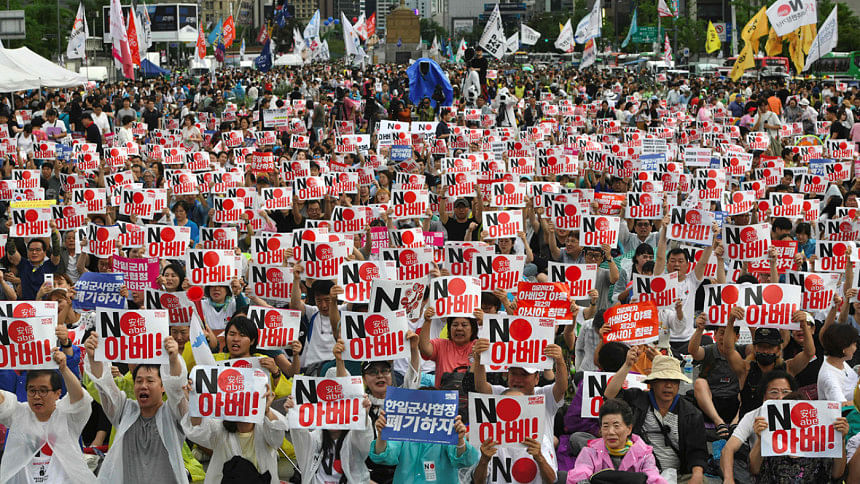Japan emperor speaks of ‘deep remorse’ over WWII

Japan's new emperor spoke of "deep remorse" yesterday over the country's wartime past in his first speech to commemorate the end of World War II since his enthronement in May.
Emperor Naruhito's comments were being monitored in Tokyo and throughout Asia for any change in tone, but he closely echoed the language employed by his father Akihito.
"Looking back on the long peaceful years after the war, reflecting on our past, and bearing in mind the feeling of deep remorse, I earnestly hope that the devastation of war will never be repeated," said the 59-year-old Naruhito.
"During the 74 years since the end of the war, the peace and prosperity of our country today has been built through the tireless efforts of the people.
"Yet when I think of their past full of suffering, I am truly overcome with deep emotion," Naruhito told the solemn ceremony in central Tokyo which also featured a minute's silence for the war dead.
Meanwhile, conservative Prime Minister Shinzo Abe shied away from visiting a controversial shrine that commemorates war dead, including convicted war criminals, that has become a flashpoint with Japan's neighbours, especially China and South Korea.
This year's ceremonies came as Tokyo and South Korea -- one of the countries that suffered most from Japan's wartime military atrocities -- are embroiled in a war of words over trade and history.
During a speech to mark the anniversary of Korea's liberation from Japan's 1910-45 rule, President Moon Jae-in, however, struck a conciliatory tone towards Japan, offering to "join hands" if Tokyo chooses dialogue.
But the foreign ministry in Seoul voiced "deep concern" at the offerings to Yasukuni, which it said "glorifies Japan's past colonial plunder and war of invasion and enshrines war criminals."
Yasukuni honours 2.5 million war dead, mostly Japanese, who perished in the country's wars since the late 19th century. It also enshrines senior military and political figures convicted of war crimes by an international tribunal after World War II.
This makes it a magnet for criticism from countries that suffered from Japan's colonialism and aggression in the first half of the 20th century.

 For all latest news, follow The Daily Star's Google News channel.
For all latest news, follow The Daily Star's Google News channel. 



Comments